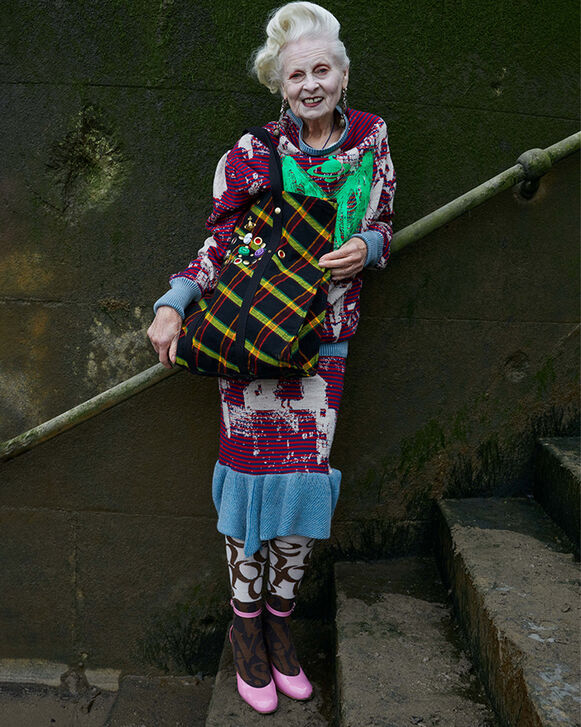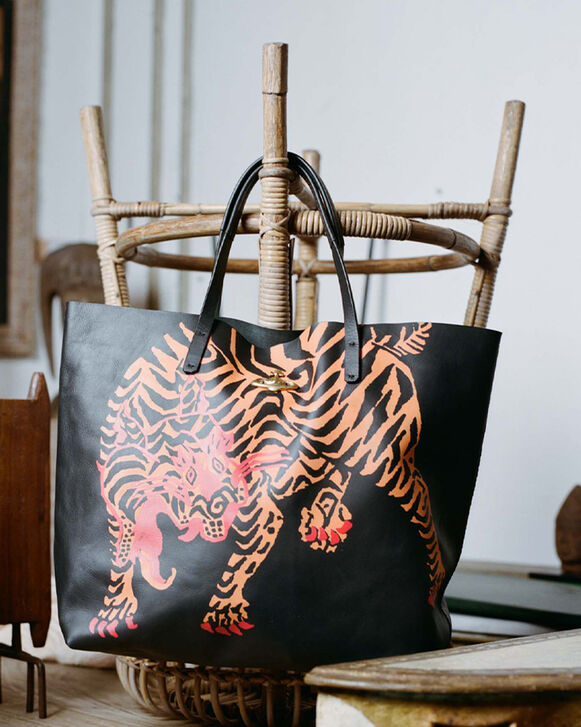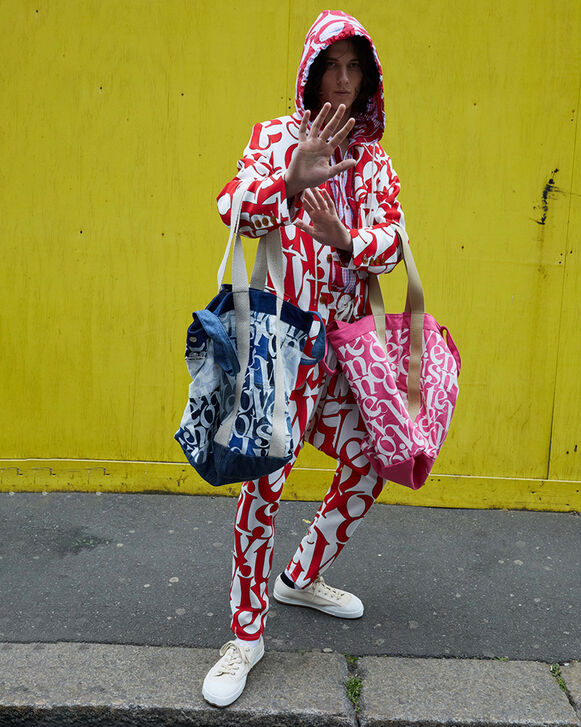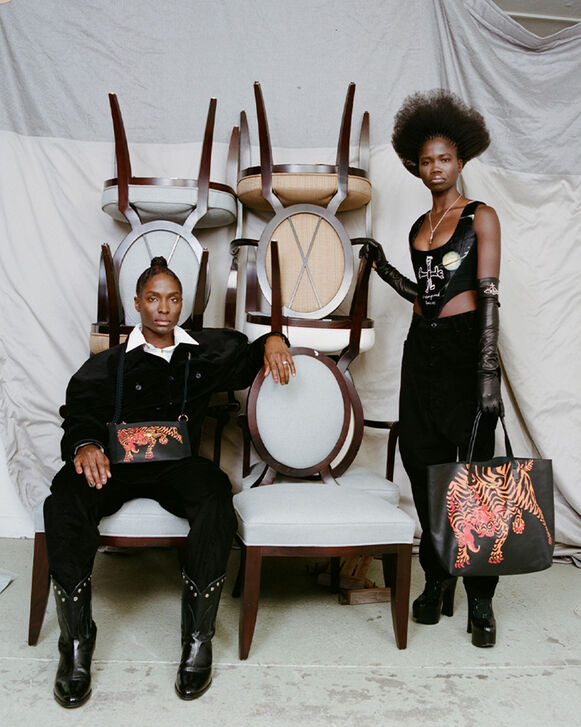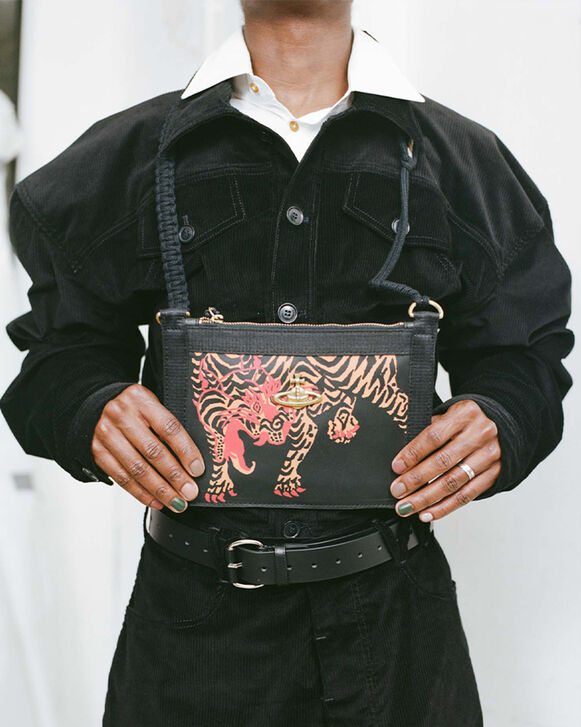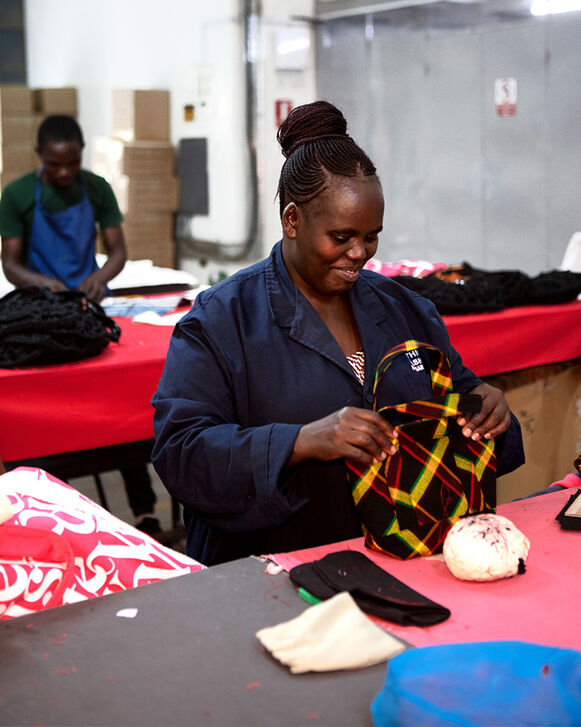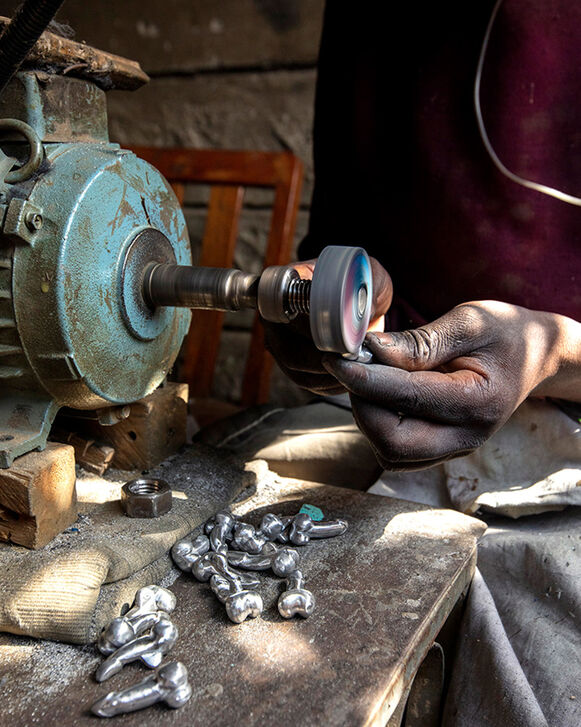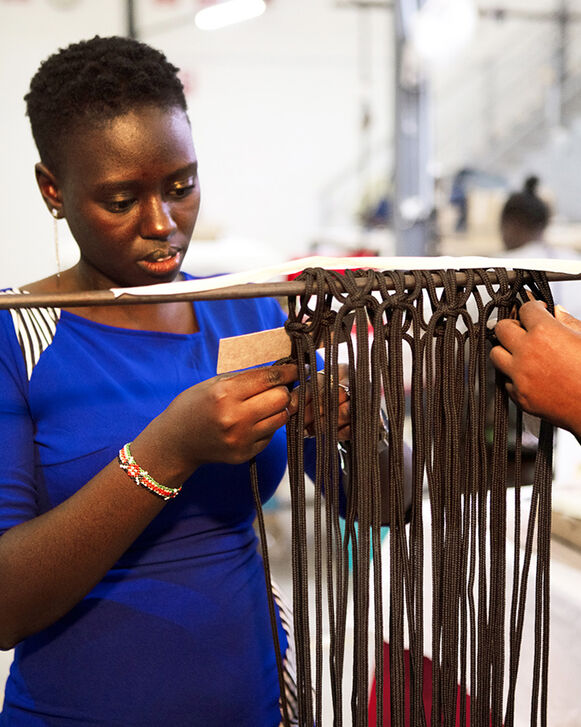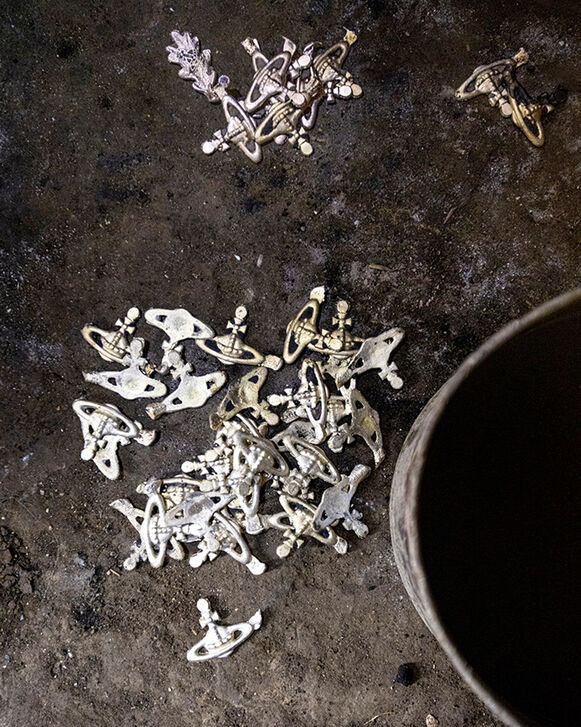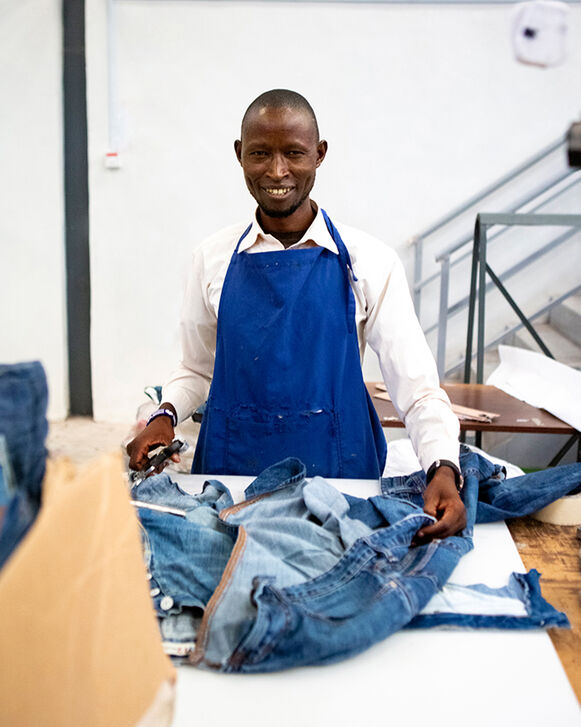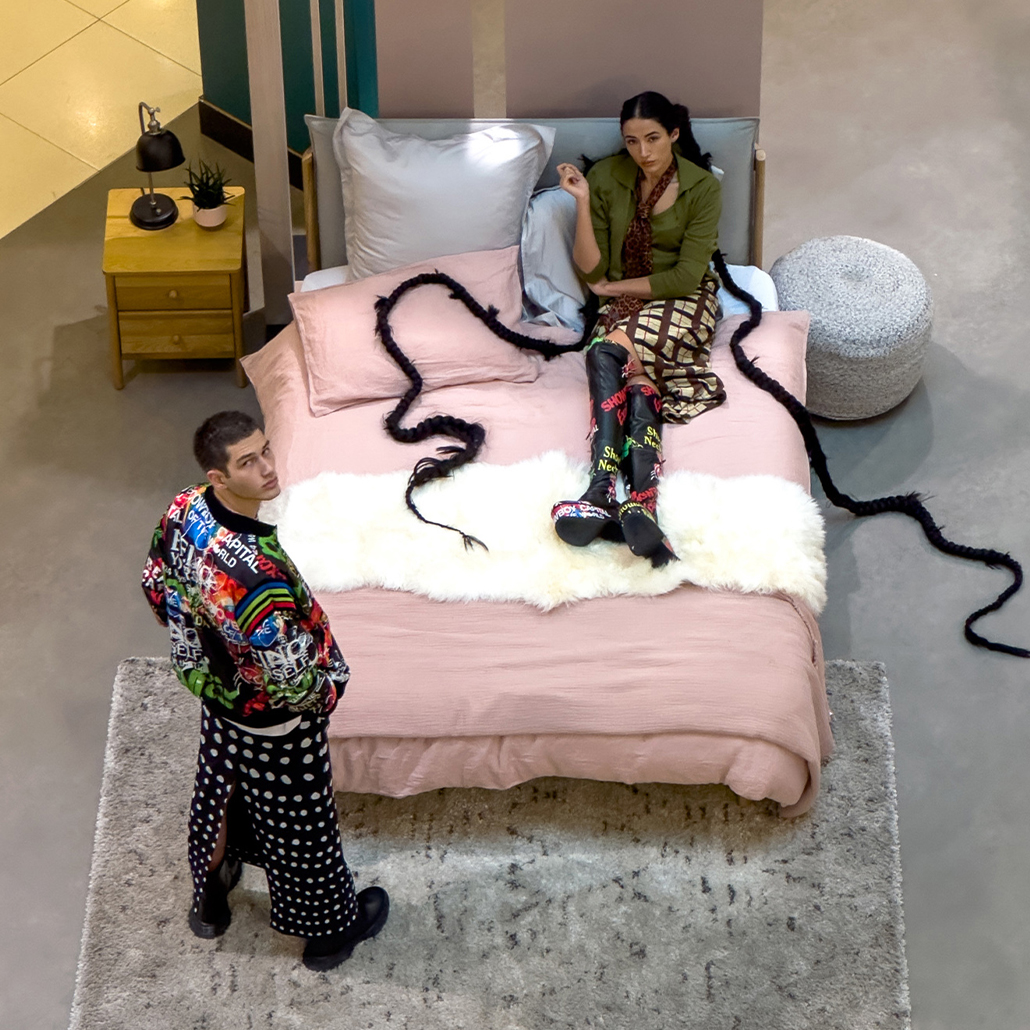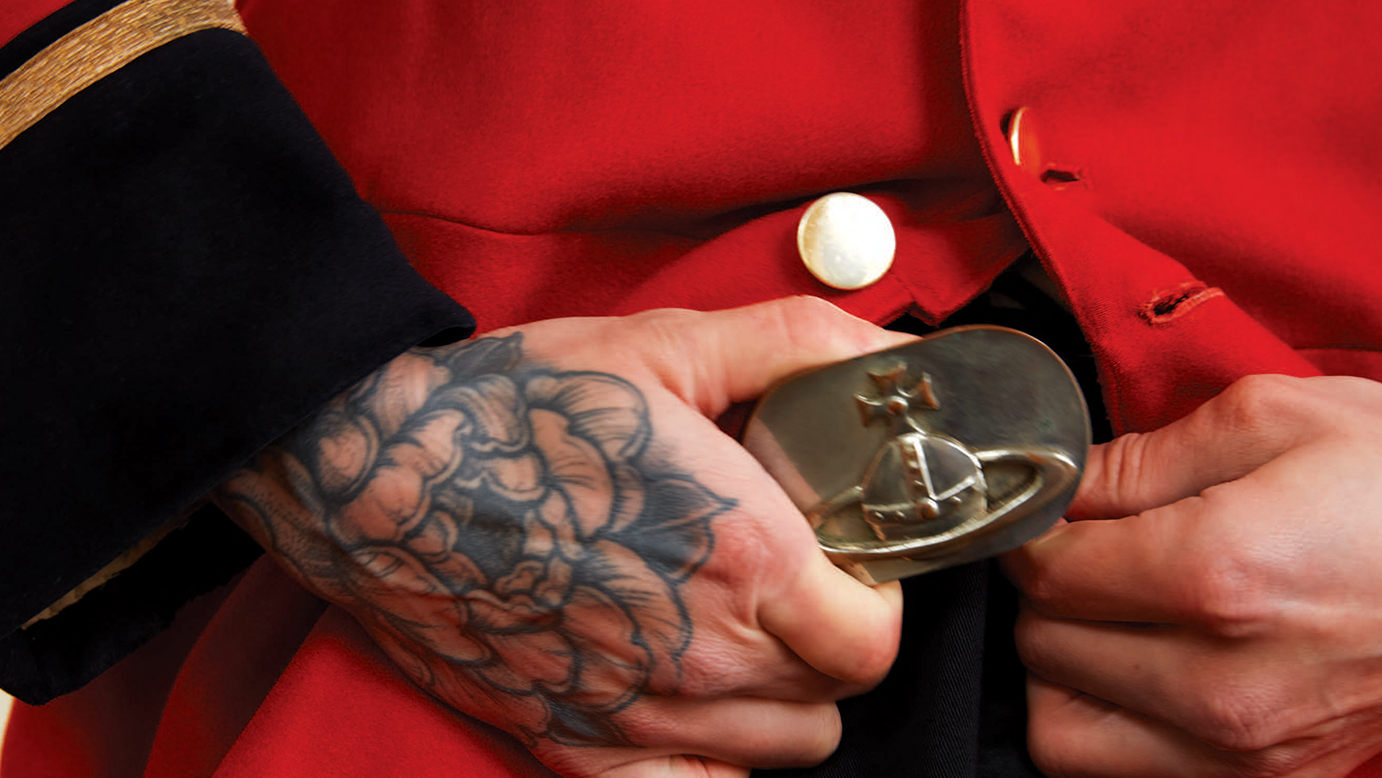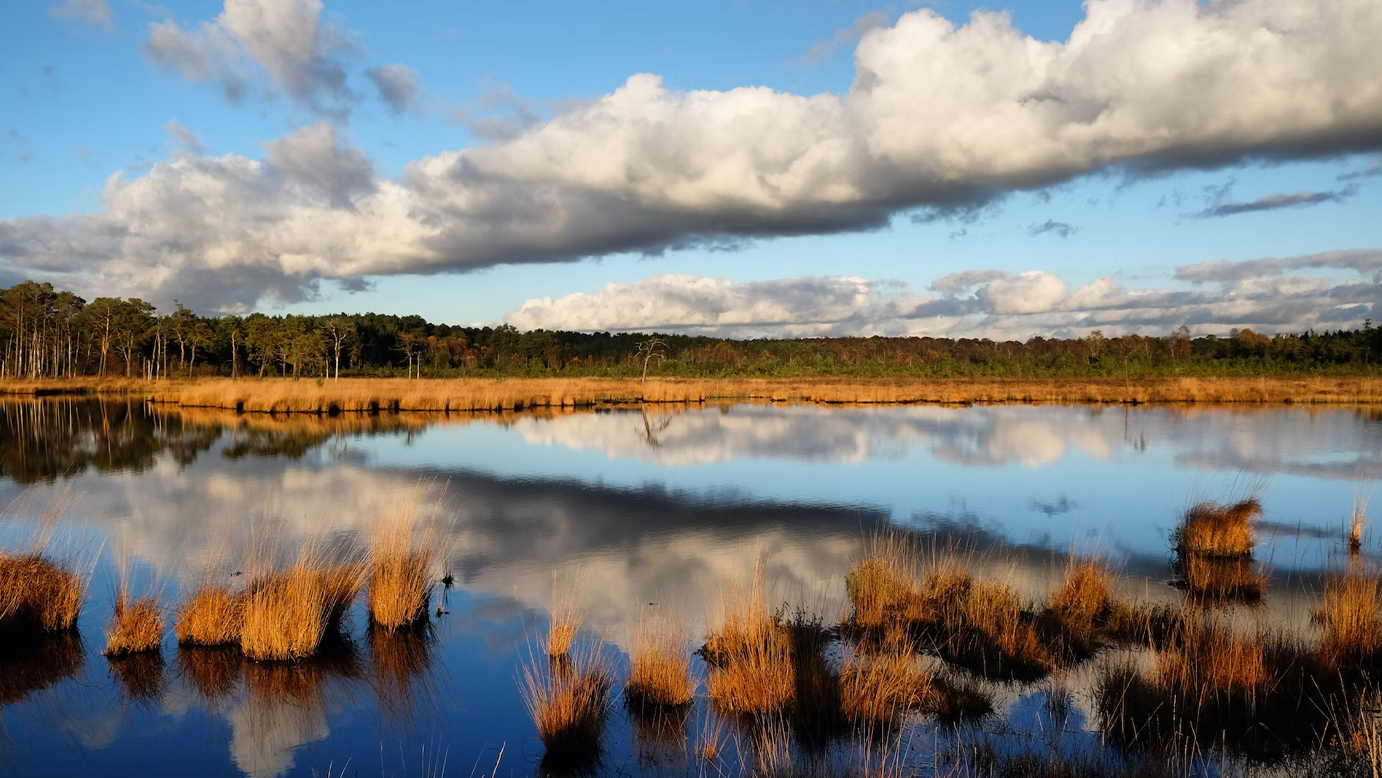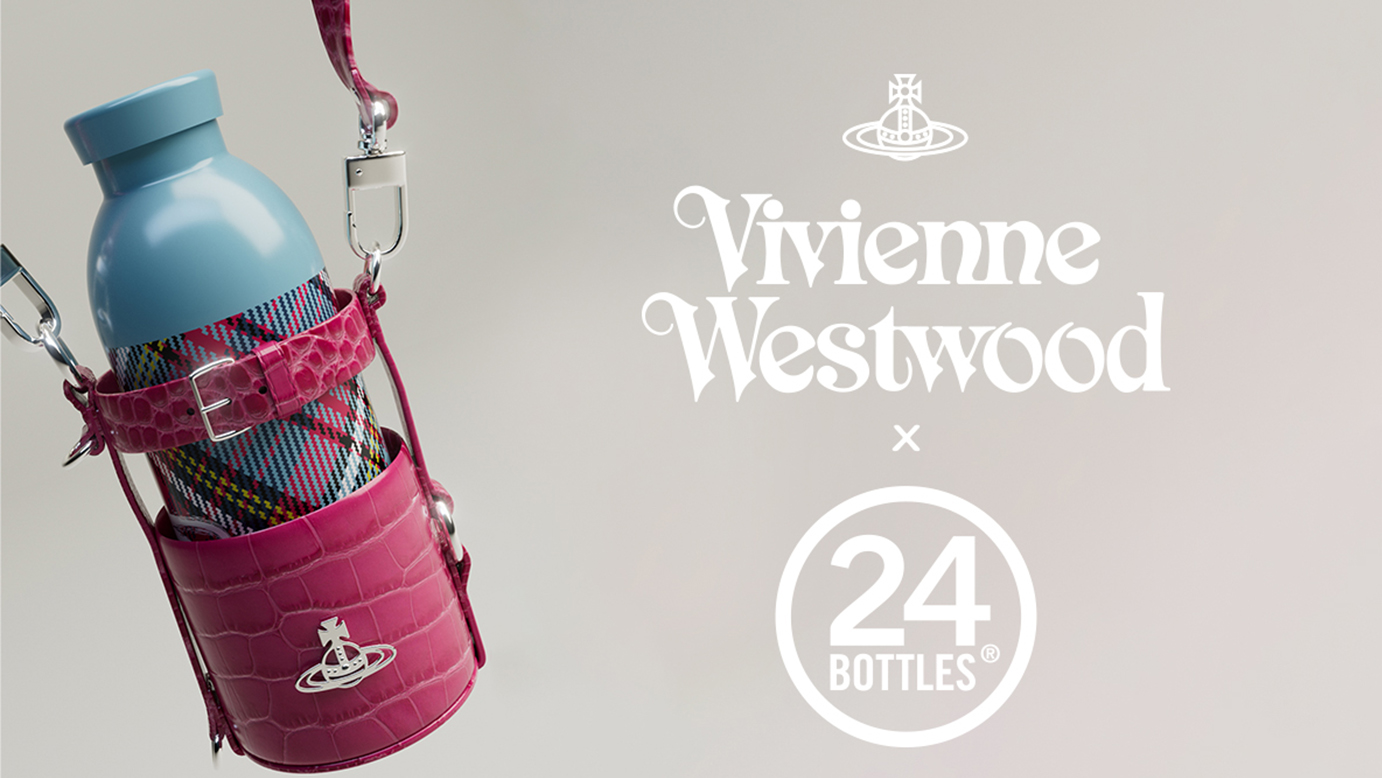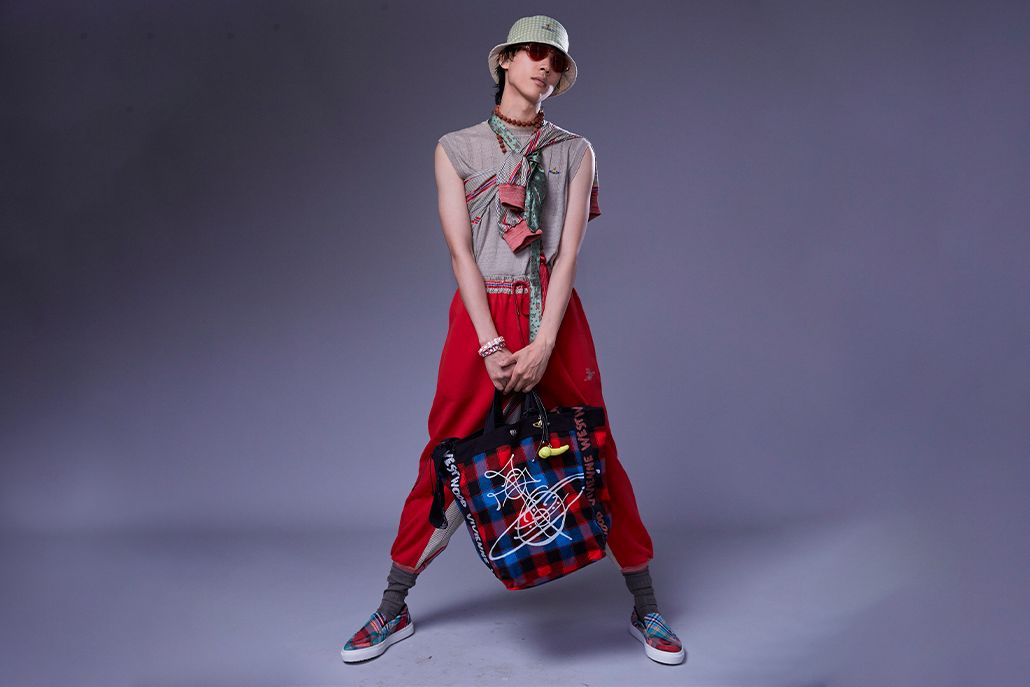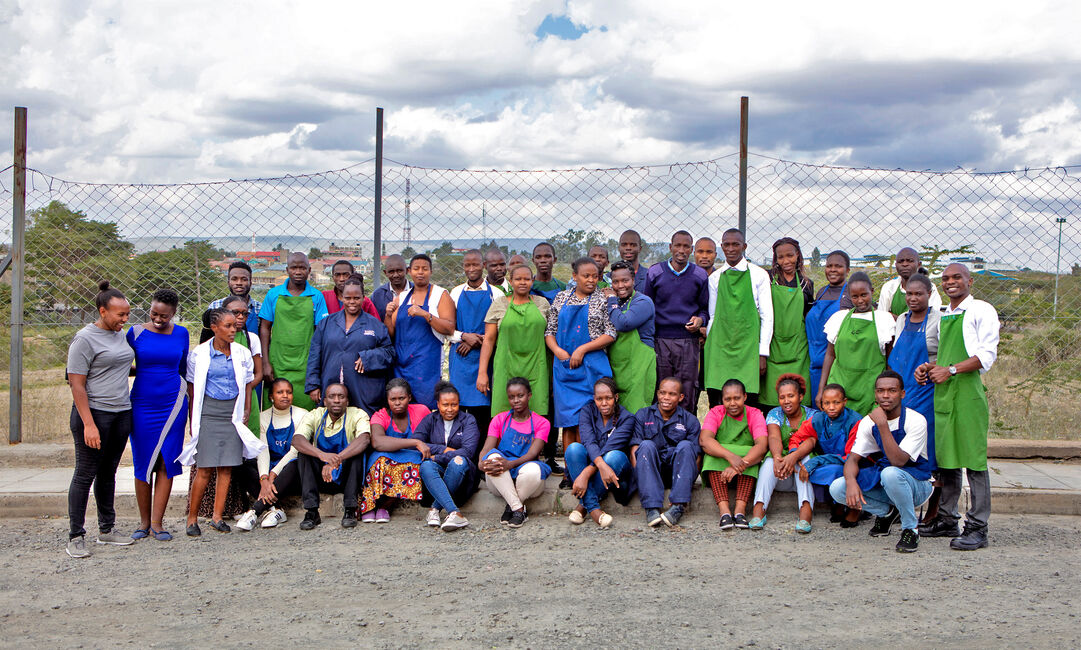
News And Projects
Made In Kenya - The Journey Continues
03/11/2022 — Vivienne Westwood
Each collection calls for diligence. An affinity towards the craft — but also to its people. In prolonging our engagement with local producers from marginalised Kenyan communities, our ‘Made in Kenya’ collections hold a significant place within the Westwood ethos. With the collaboration of the Ethical Fashion Initiative (EFI), methods of sustainable manufacturing have been used to not only create premium products, but ensure dignified work for skilled women, men and communities. “We are doing this for the love of humanity,” explains Vincent Oduor, Program Management Officer for Ethical Fashion Initiative. “Because every human deserves a better job, a better life and enjoyment — to live as a human being.”
Since 2015, our Made in Kenya collection has been supported by a local social enterprise, Artisan Fashion, which specialises in the production of high-end accessories with community groups of artisans in Kenya. “We want to spark a conversation around the adverse effects of fast fashion – and what it’s doing to our environment,” offers Violet Njoki, Community Liaison officer at Artisan Fashion. Kenya is the major importer of second-hand clothes, importing nearly 200,000 tons each year, to be sold at the dedicated Mitumba markets. The issue is that much of this textile waste ends up in dump sites, or even burnt on open fires (along riverbeds and washed out into the sea) with severe consequences on both local people and the environment. Our patchwork tote bags are among the pieces making use of second-hand garments, fabricated from deconstructed jeans.
Using fashion to serve both the environment and community is not only about looking towards new ideas and technological advancements. It also adheres to how we can look to traditional, smaller scale means of garment manufacturing. Ones that support the welfare of the artisans themselves. Accordingly, our ‘Made in Kenya’ collections are created in collaboration with thousands of micro-producers from Kenya – 78% of whom use income received to fund the education of their dependants.
As an artisan working on site, Rael Kainda reflects on working on the macrame bags for this season’s collection, noting the impact this job has had on her life. “Thanks to this macrame order, I was able to save, and ensure that my children will continue to attend school. One of my sons, now in college, is mastering traditional skills, such as beadwork and weaving, thanks to trainings and orders received from Artisan Fashion throughout the years. During school holidays, he makes beaded bracelets that sells at local markets, earning a small income. This lightened my “economic burden”. The impact created by Artisan Fashion is beyond imagination and we are forever grateful”.
The handmade nature of our accessories brings a natural variation to each product. In looking beyond the aesthetic qualities of the materials we use, we consider their social and environmental impacts, by means of ‘re-imagining waste’. For these pieces, local artisans recycled old car engine parts, taps and padlocks from the local scrap yard. These metals were then melted down and cast into a mould to form the Vivienne Westwood logo, hardware and buckles. The hardware used to finish the Made in Kenya accessories were handcrafted by Rangau Designers – a community team of brass artisans, based in Korogocho, one of the largest slum neighbourhoods of Nairobi. “I am a blessed father of 4 children, and I have been part of the Rangau community for almost 3 years”, explains Artisan, Edwin Ochieng. “This job changed my life, and the life of my family. I thank Artisan Fashion so much for providing us work and I am looking forward to receiving more orders to create employment for more people.’’
With an ever-evolving commitment to these communities, the aim remains to support the cultivation of circular economies – and thereby encourage a stable income for artisans throughout the year.
